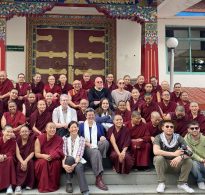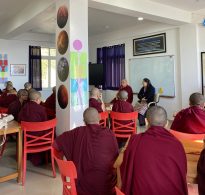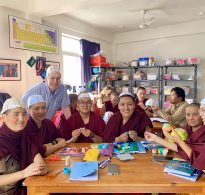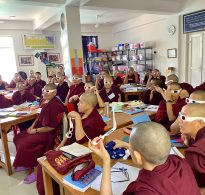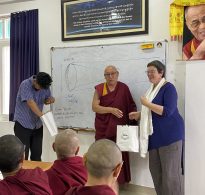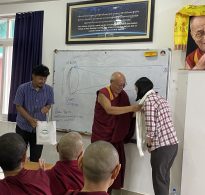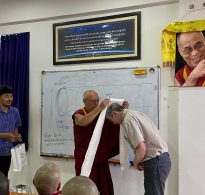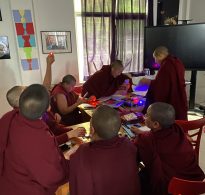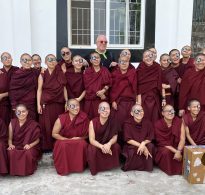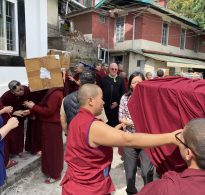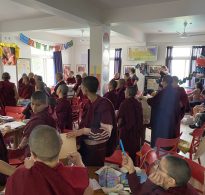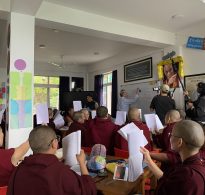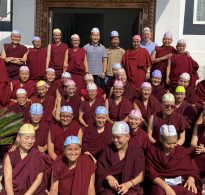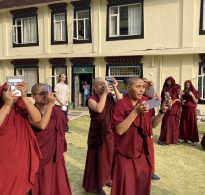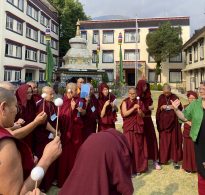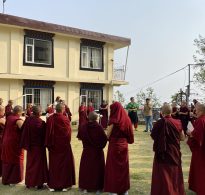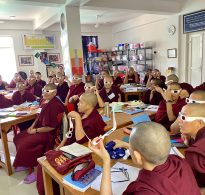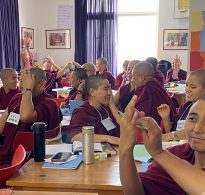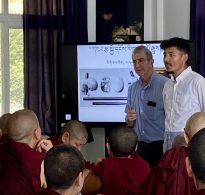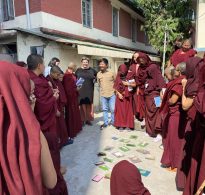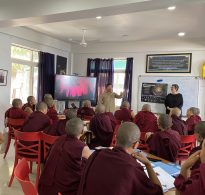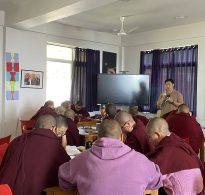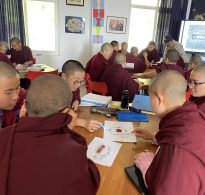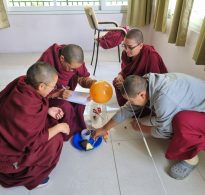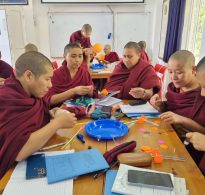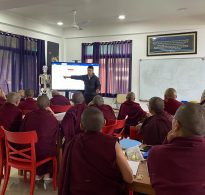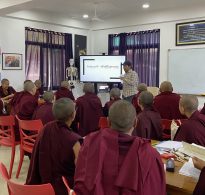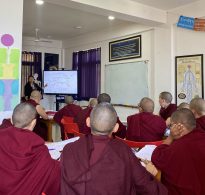Nuns’ Science Leadership Program
24th March, 2025 – 12th April, 2025
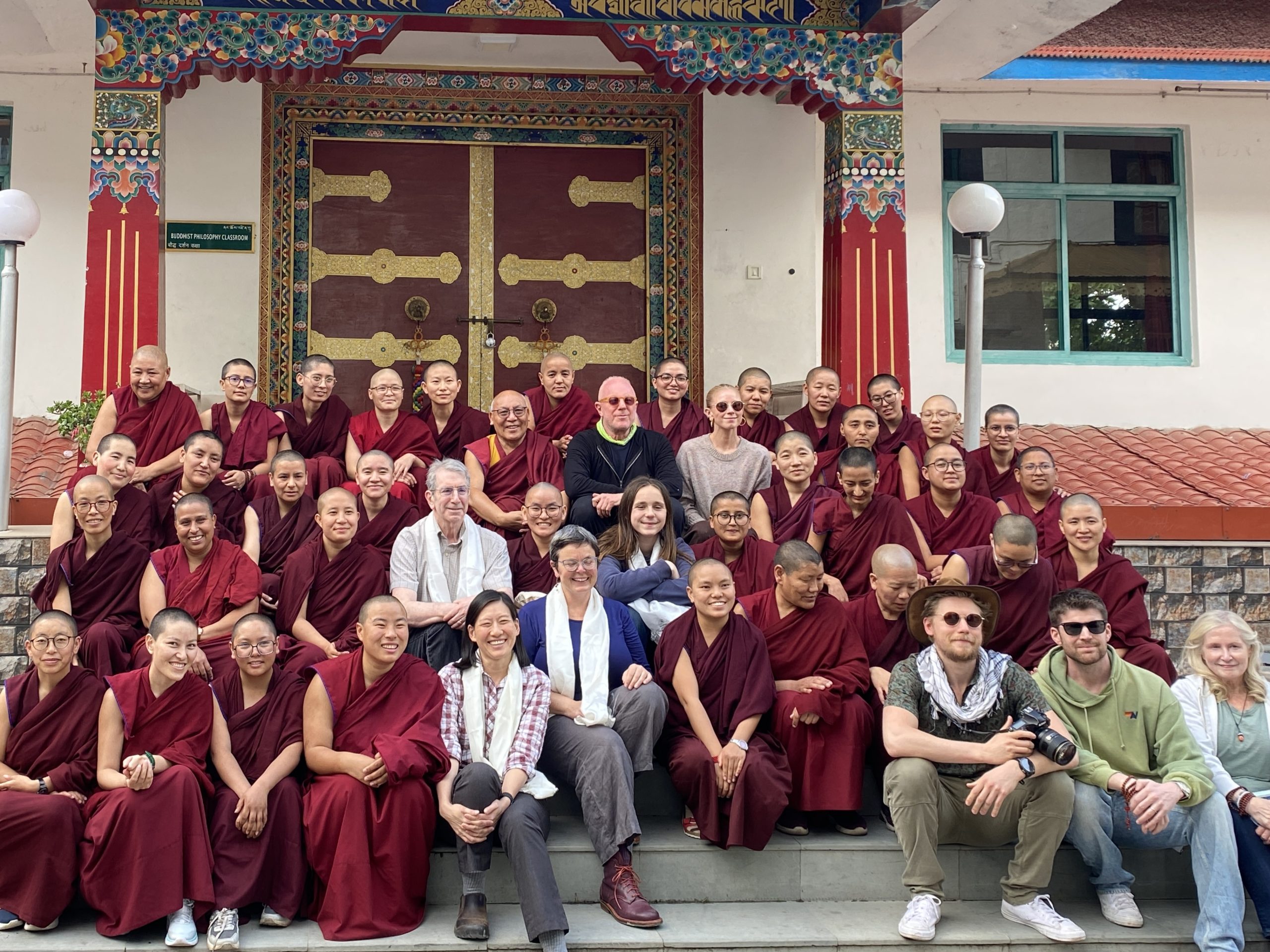
The three-week Nuns’ Science Leadership Program began on 24 March 2025 with a simple inaugural ceremony in the presence of LTWA Director Ven. Geshe Lhakdor la. This year, 35 nuns participated in this workshop, which concluded on 12 April 2025.
During the first two weeks of the workshop, LTWA Science Department teachers conducted basic classes on Neuroscience, Biology, Physics, and Mathematics. For the next week, we had three guest teachers: Eric Chudler, Julie Yu, and Vivian White, who took classes on Neuroscience, Biology, and Astronomy, respectively. LTWA Science Department staff helped interpret and translate these classes. The classes were held at the Sager Science Centre, Library of Tibetan Works and Archives, Dharamshala.
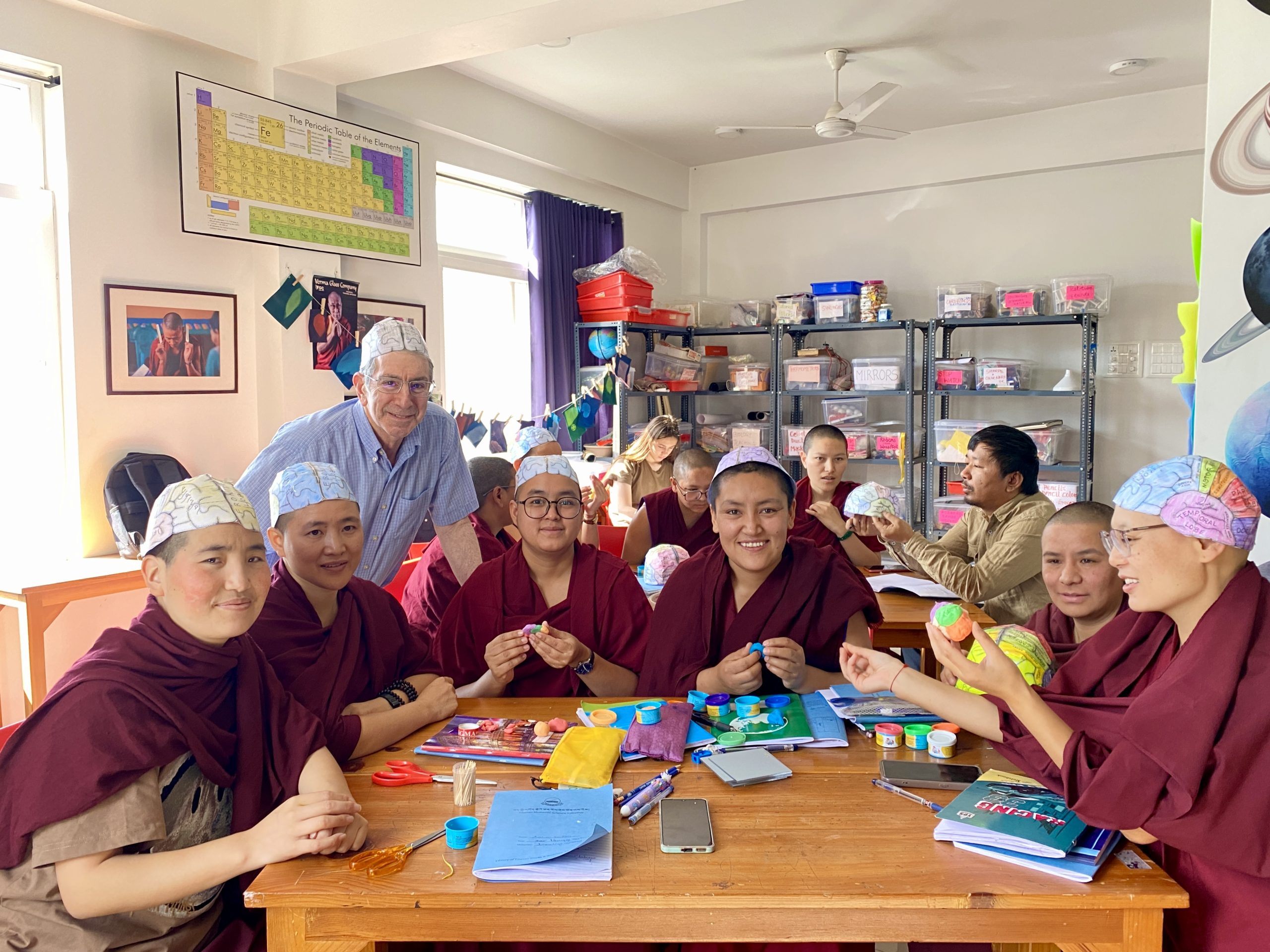
Eric Chudler indulged in teaching the nuns about the brain anatomy and how the brain works. He explored the field of neuroscience in a very interactive and engaging manner, and the nuns found his classes very intellectually fun. Eric focused on brain regions like the hippocampus, cortex, amygdala, etc, and the functions these brain parts carry. He taught the participants about synaptic transmission, neurotransmitters, and how neurons communicate. One of the major aspects of his lecture was the Q&A session at the beginning of every class, where he discussed questions posed by the nuns, making it a very open and interactive atmosphere. Another enriching and educational activity was the making of brain hats, where the nuns could practically learn about neuroanatomical positioning.
Julie Yu conducted classes on biology, primarily focusing on the mechanism of vision. She conducted many practicals of binocular rivalry, which is often used in visual perception studies. She vastly explored the physiology of the eye, specifically how the 3-dimensional world works through anaglyph 3D and Binocular vision experiments. Julie also conducted engaging classes on visual perception and retinal inversion by exploring the Pinhole Camera Experiment. The nuns found this experiment extremely intriguing and informational, many expressed to bring these experiments back to the Science Centres in their nunneries for the younger nuns who are intrigued to learn science.
Vivian White explored the study of astronomy, immersing the nuns in a different world. She talked about the moon, stars, planets, etc. The nuns had very intriguing questions about planetary science, overall making the classes very informative. She engaged in teaching the nuns about Lunar Observation and Moon phases through practicals and experiments about the alignment of the Moon in relation to its position and movements in the sky. The nuns also learnt about telescope and astronomical optics, and their parts. Vivian also taught about the Electromagnetic Spectrum, which the nuns found very interesting.
About the teachers
Eric H. Chudler
Eric H. Chudler is a neuroscience and research associate professor at the 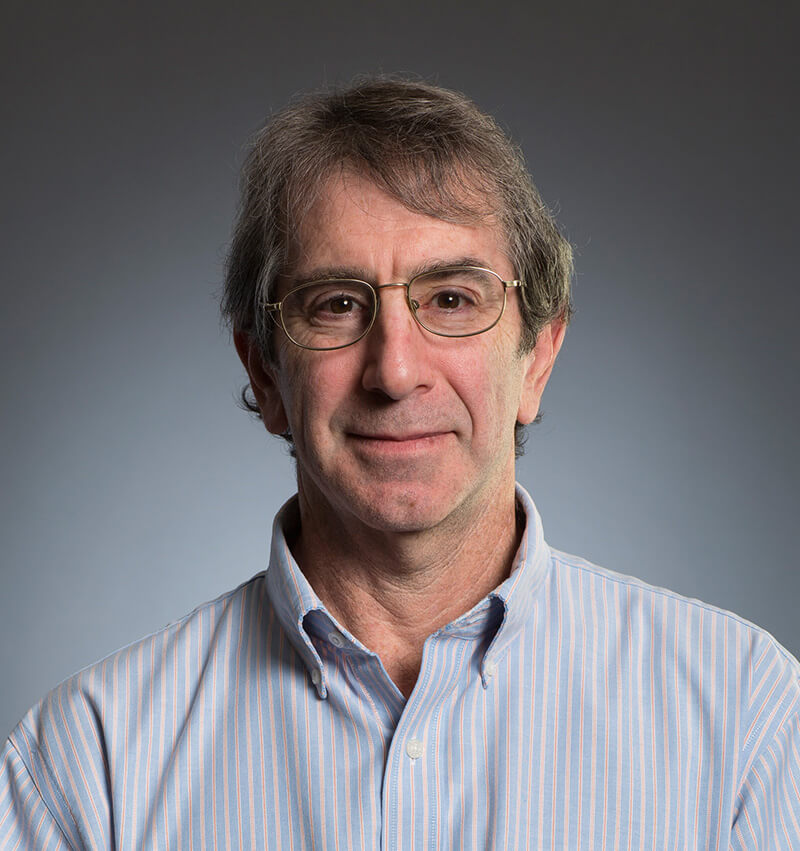 University of Washington, Seattle, with affiliations in the Department of Bioengineering and Department of Anesthesiology & Pain Medicine. Eric received his Ph.D. from the Department of Psychology at the University of Washington in Seattle in 1985. Eric works with other neuroscientists and classroom teachers to develop educational materials to help K-12 students learn about the brain. His website, Neuroscience for Kids, is accessed millions of times each year by students and teachers from around the world. Eric is also the executive director and education director at the Center for Neurotechnology. His outreach and education work includes the development of the BrainWorks video series, which received Northwest Regional Emmy Awards in 2017 and 2023.
University of Washington, Seattle, with affiliations in the Department of Bioengineering and Department of Anesthesiology & Pain Medicine. Eric received his Ph.D. from the Department of Psychology at the University of Washington in Seattle in 1985. Eric works with other neuroscientists and classroom teachers to develop educational materials to help K-12 students learn about the brain. His website, Neuroscience for Kids, is accessed millions of times each year by students and teachers from around the world. Eric is also the executive director and education director at the Center for Neurotechnology. His outreach and education work includes the development of the BrainWorks video series, which received Northwest Regional Emmy Awards in 2017 and 2023.
Julie Yu

Julie Yu is a Principal Scientist at the Exploratorium, San Francisco’s museum of science, art, and human perception. She provides science content support throughout the museum and works with teachers to bring inquiry-based science learning to their classrooms. With a broad interest in all sciences, she has a PhD in chemical engineering from the University of California, Berkeley, with a minor in molecular and cell biology. Her work and research have spanned from viruses and stem cells to teacher learning and inquiry to concrete and cement. She is captivated by thinking about food as a way of bringing together key interests of science, culture, identity, and eating.
Vivian White
 Vivian White is an accomplished educator and leader in the field of astronomy with extensive experience in program management and teaching. She is currently the Director of Free Choice Learning at the Astronomical Society of the Pacific in San Francisco, CA. She and her team administer the NASA Night Sky Network, a community of more than 400 astronomy clubs across the US, creating activities and demonstrations for informal educators and their audiences. Vivian White aims to inspire a passion for astronomical discovery through various educational initiatives. Previous roles include Camp Astronomer at Oakland Feather River Camp, Master Teacher at Aim High, and Assistant Director at MESA, where she supported underrepresented students in math and science education.
Vivian White is an accomplished educator and leader in the field of astronomy with extensive experience in program management and teaching. She is currently the Director of Free Choice Learning at the Astronomical Society of the Pacific in San Francisco, CA. She and her team administer the NASA Night Sky Network, a community of more than 400 astronomy clubs across the US, creating activities and demonstrations for informal educators and their audiences. Vivian White aims to inspire a passion for astronomical discovery through various educational initiatives. Previous roles include Camp Astronomer at Oakland Feather River Camp, Master Teacher at Aim High, and Assistant Director at MESA, where she supported underrepresented students in math and science education.

